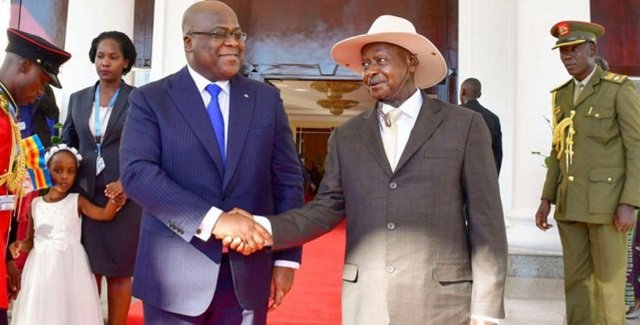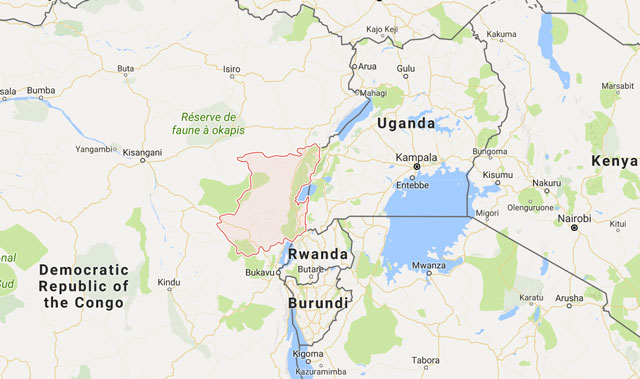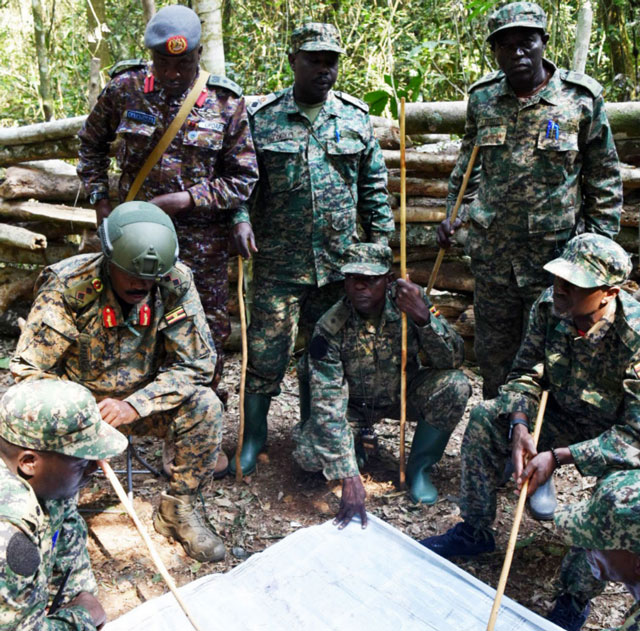
US hails Kenya’s Ruto for sending troops to DRC
Kinsahasa, DRC | THE INDEPENDENT & XINHUA | President Félix Antoine Tshisekedi Tshilombo has addressed the nation over the unrest in east of the Democratic Republic of the Congo (DRC), and said despite disagreement with Rwanda, he has chosen peace over war.
In a national address, Tshisekedi again accused Rwanda of destabilising the east of the country to appropriate its minerals.
” Rwanda has expansionist ambitions with the main interest of appropriating our minerals and to do this, it is working to destabilize eastern Congo to create a zone of lawlessness,” Tshisekedi said in his address live on television.
#RDC: Tshisekedi dénonce le Rwanda qui selon lui, tient à avoir le contrôle de nos ressources pic.twitter.com/YX12OnbfLc
— Stanis Bujakera Tshiamala (@StanysBujakera) November 3, 2022
He said he has tried previously to hace peace with DRC neighbours. ” Uganda, for example, we have gone so far as to pool our forces”, said Tshisekedi.
“With Rwanda, a memorandum of understanding was signed in the gold trade with a national company, Rwanda airline started flying to our country and an agreement of non-double taxation has been signed,” Tshisekedi said, showing DRC willingness to work with Kigali.
“Despite this, a neigbouring country has surprised us by reactivating the terrorists of the M23. While it had been defeated by arms in 2013, the M23 in now back particularly in Bunagana, which it has has occupied since June 13, 2022,” he said.
He concluded by saying, “to deal with this situation, two options were available to us: diplomacy or war. I have decided to favor the first option even if it means coming to the second for lack of results.”
Tshisekedi however warned that decision to the search for peace by peaceful means is in no way a sign of weakness, even less an admission of an inability of DRC to engange in war if needed.

He called for unity among Congolese, and warned “civilian or military traitors” that they will face the full brunt of the law.
US hails Kenya
Soon after the address, US Secretary of State Antony Blinken hailed Kenyan President William Ruto for pushing for peace in Ethiopia and DRC.
“I spoke to President Ruto today to congratulate him for his government’s role in advancing peace in northern Ethiopia. I also noted appreciation for East African Community-led efforts to stabilize eastern DRC,” Blinken said
A day earlier, Kenyan President Ruto flagged off troops headed for a peacekeeping mission in the Democratic Republic of the Congo.
Ruto said the Kenyan contingent to the eastern part of the DRC will work under the auspices of the East African Community Regional Force (EACRF).
“We are sending a signal to the world of our commitment to perform our obligations by contributing to the achievement and maintenance of peace and stability in our region,” Ruto said in Nairobi, the capital of Kenya.
The deployment of Kenyan troops to the DRC follows a decision endorsed and adopted by regional leaders at the third EAC Heads of State Conclave on Peace and Security in eastern DRC held in Nairobi in June.
The president noted that the DRC has made encouraging steps to stabilize and create a national capacity to provide security services as well as guarantee opportunities for its citizens.
“The country remains, however, burdened with serious challenges, and I believe that we owe a brotherly duty of solidarity to meet DRC halfway and stand together until the job is done. The situation in eastern DRC remains fluid at the operational and even at the diplomatic level,” Ruto added.
Ruto observed that at the bare minimum, every society deserves the opportunity to experience peace and safety, and every nation desires to guarantee its people that dividend of security and stability.
“Without peace, human freedom is in jeopardy. Without stability, all potential is deferred in perpetuity. And without security, opportunities remain a mirage and unattainable,” he said without stating the number of soldiers dispatched to DRC.
The Kenyan leader added that the DRC’s state of insecurity is of tremendous concern to humanity as well as the region and thus the deployment of a regional force in pursuit of peace and the activation of the EAC regional force to forestall conflict is therefore legitimate, urgent and necessary.
Robert Kibochi, chief of the Kenya Defense Forces said that Kenyan troops will partner with the DRC to continue to provide humanitarian relief to populations affected by armed groups, including internally displaced persons.
Kibochi noted that the Kenyan contingent will also jointly plan and conduct operations within the eastern DRC to contain the threats of the armed groups.
Earlier, Increased fighting has forced UN peacekeepers to withdraw from a base in the eastern Democratic Republic of Congo (DRC), a UN spokesman told Xinhua on Wednesday.

The peacekeeping mission in the country, known as MONUSCO, continues to protect civilians and to work alongside the Congolese army to deter the M23 and other armed groups in the eastern part of the country, said Stephane Dujarric, the chief spokesman for the UN secretary-general.
However, Durjarric said, “following consultations with national partners, the mission withdrew peacekeepers from its base in Rumangabo, in North Kivu province, an area where the Congolese army is no longer present.”
He said a crowd of people threw stones at a peacekeeping convoy on Tuesday at an army checkpoint near a displaced persons site about eight km north of Goma, the capital of North Kivu. Despite firing warning shots, two peacekeepers were injured, and a mission vehicle was set afire.
“Our colleagues note that this type of violence and destruction of equipment limits the mission’s capacity to carry out its mandate to protect civilians and support the delivery of humanitarian assistance to vulnerable communities,” said the spokesman.
He said renewed fighting between the army and the M23 rebels forced thousands to flee their homes in Rutshuru Territory in North Kivu. Many of the displaced are living in schools, hospitals, churches, and other sites, although the majority are living with host families.
Despite severe access constraints, humanitarian workers have started helping displaced people in Nyiragongo territory, providing them with water and healthcare, Dujarric said.
According to Dujarric, humanitarians identified more than 180 unaccompanied children for child protection workers and assisted some 2,000 others to receive psychological support. Humanitarian needs still exceed present capacities, especially in the south of Kayna health zone in Lubero territory, which was already home to some 50,000 displaced people.
 The Independent Uganda: You get the Truth we Pay the Price
The Independent Uganda: You get the Truth we Pay the Price





